FORT LEE, Va. (May 19, 2011) -- The recently published images of artfully decorated plates, neatly pressed chef jackets and gold-medal presentations during the annual Culinary Arts Competition here paint a pretty glitzy picture of the military food service profession.
While the annual event is certainly important, and it showcases some the most skilled and motivated cooks the military has to offer, it's a far cry from the day-to-day activities in an actual dining facility. The daily duties there offer long hours, little glamour and plenty of laborious tasks that require patience and persistence.
Sgt. Kevin Church, a cook at the 49th Quartermaster Group Consolidated Dining Facility, offered a glimpse of his world.
"The average Soldier doesn't really understand what we do," he said. "They know we work long hours, but most don't appreciate what goes on behind the serving lines. All they want is their food."
The start of the duty day for most military cooks is somewhere around "O-dark-thirty" - translation: about two or three hours before the first morning physical training formation for other troops. Some of the tasks on a typical day include cooking a hundred pounds of sausage, seasoning and preparing two-hundred pieces of chicken, cutting 250 pieces of cake and slicing and dicing 20 whole pineapples. Using the word "tedious" to describe the job is an understatement.
"It's a lot of work," said Spc. Kenisha Handy-Diggs, who has worked at the 49th QM Group DFAC since 2008. "We work all day. We come in at five in the morning and get off around 7:30 (p.m.). It can be draining and you have to turn around and do it all over again tomorrow. There's never enough time in the day. You never get enough sleep."
What kind of Soldier wants to work long hours, weekends and holidays' A DFAC shift leader provides some perspective about food service workers.
"You have to be above the rest," said Sgt. Sean Prater, who has 11 years of service. "You have to have a passion for what you do and you have to be strong-minded and strong-willed. If you're not, you won't make it as a cook."
Spc. Richelle Snodgrass has that passion. She said she loves the job and loves food but frets about the miniscule time she gets to spend with her children after work.
"I love the job, yes; the hours, no!"
With the long hours and exhaustive, repetitive work, one might ponder how food service personnel maintain their motivation to perform on a daily basis and in the face of a demanding and sometimes unappreciative customer base. Handy-Diggs said she gleans inspiration from the dishes on the serving lines she has helped to produce.
"I get satisfaction out of seeing my product," she said. "That's my baby, something I know I put my heart into. If people don't like it, oh well. Soldiers have a choice in where they want to eat."
Prater, the shift leader, said expressing to Soldiers' their value to the operation is the only way he knows to keep them happy and productive in the kitchen.
"Rewarding Soldiers is the only thing that keeps them motivated to do this work," he said. "We write up special awards for them, send them to a school they might not get on a regular basis or just express to them how we feel about their work as leaders."
Motivation is not the only factor of performance in a DFAC. Food service Soldiers have to lean on their battle buddies to counteract all that is required to complete the mission, said Sgt. 1st Class Antonio Goins, the assistant manager.
"Soldiers in a DFAC bond and take care of each other as family," he said. "They help each other with child care, transportation, etc. It's been that kind of atmosphere in every DFAC I've been in."
Maybe that's the DFAC's and the food service Soldiers' saving grace. They understand what they do is critical and are fully aware that their work may go unnoticed by those they serve, but they strive to improve each day - with the help of each other.
"A food service Soldier is only as good as his last meal," said Prater. "The never-ending question is, 'How can we make the next meal better than the last'' Soldiers only remember the last meal. If they got a bad taste in their mouths from the last meal, they'll remember. We have to strive for good taste and creativity, and continue to make things better. We have to create a new standard every day."
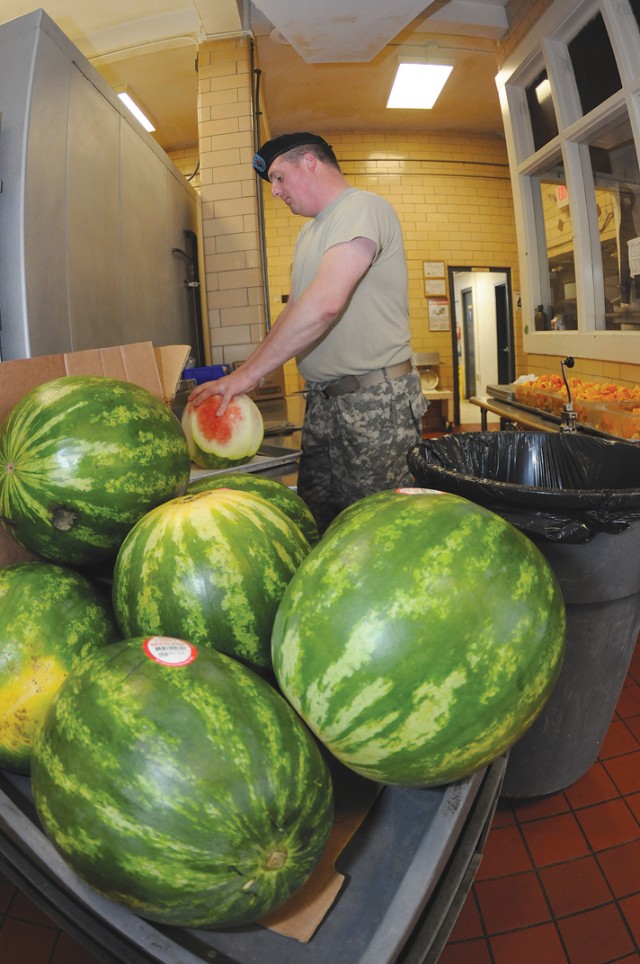
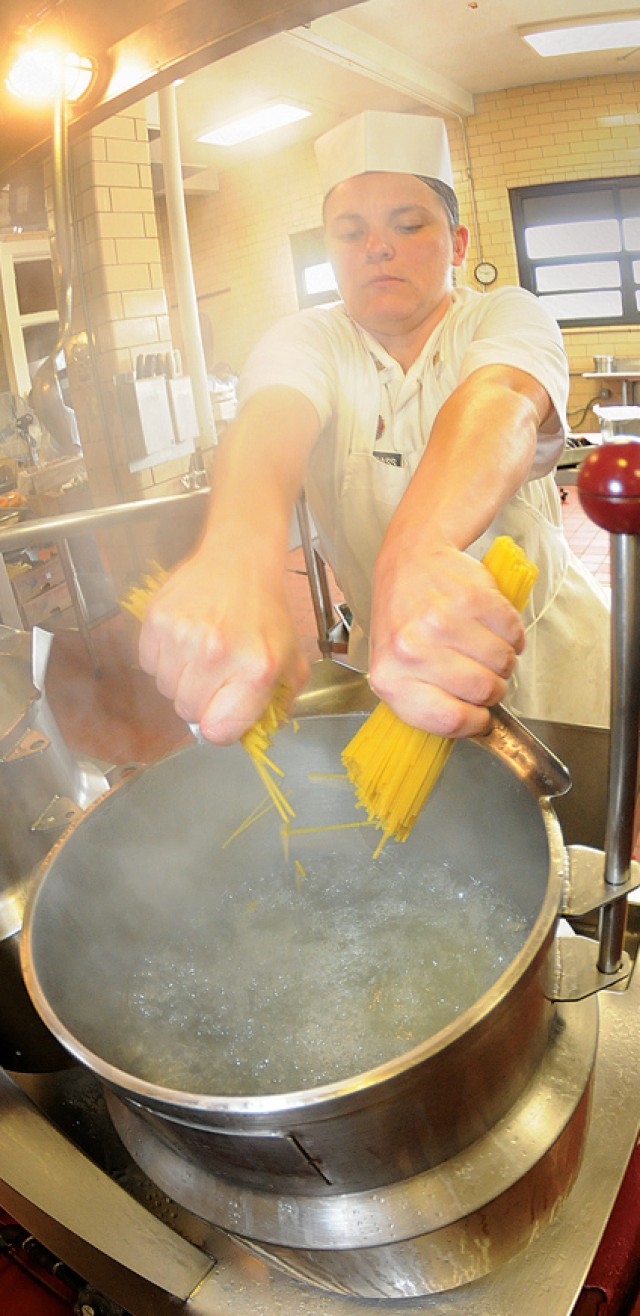
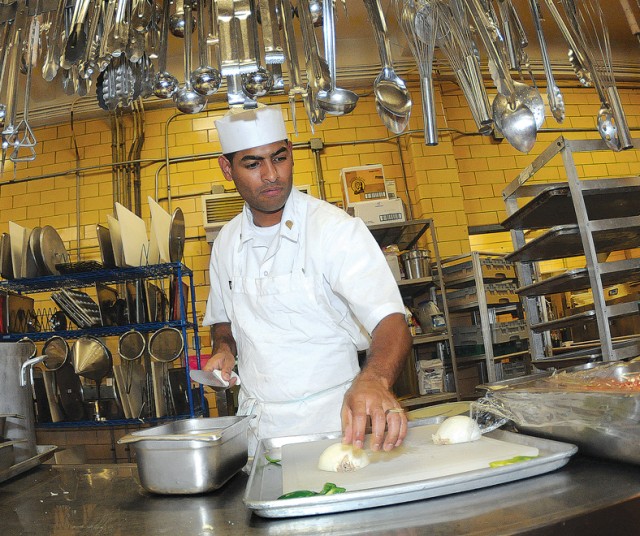
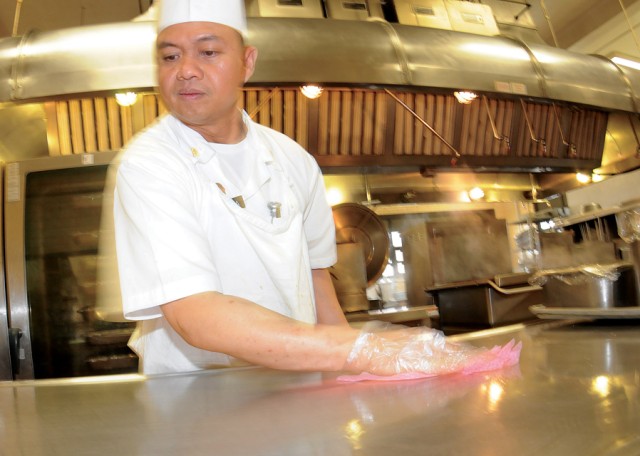
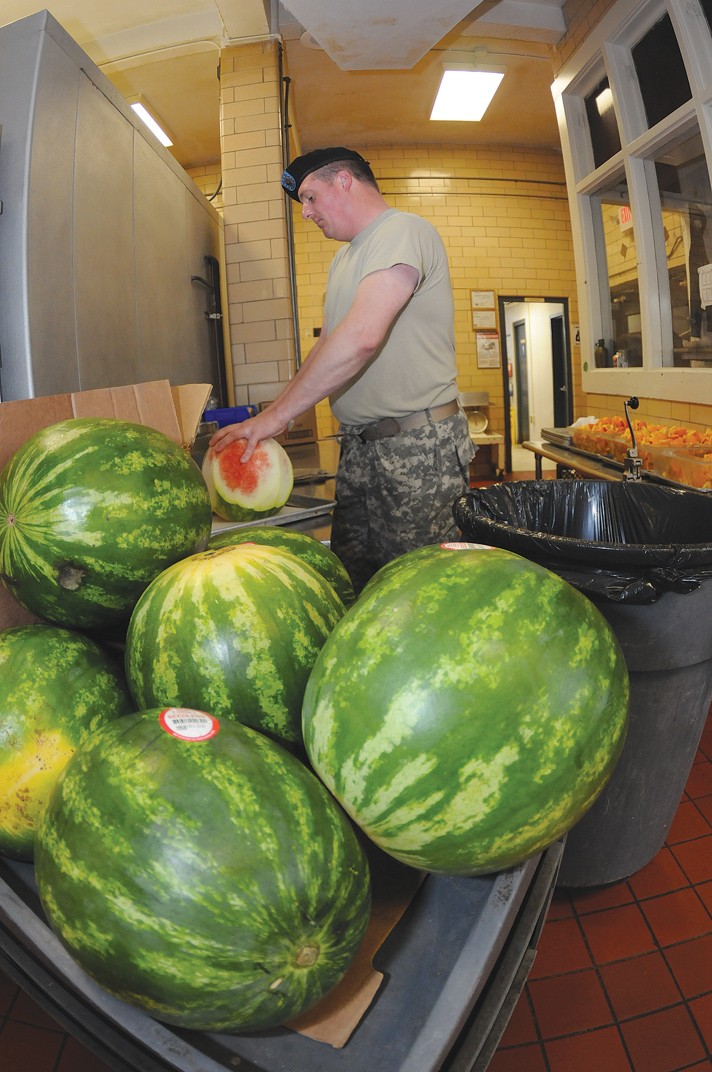
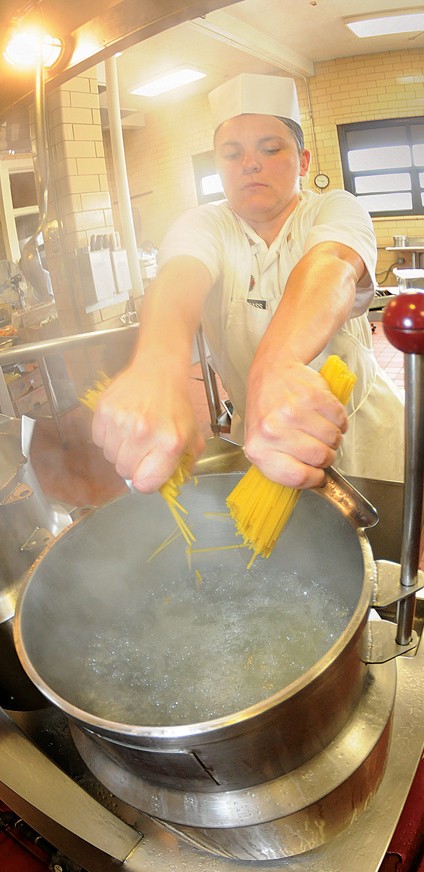
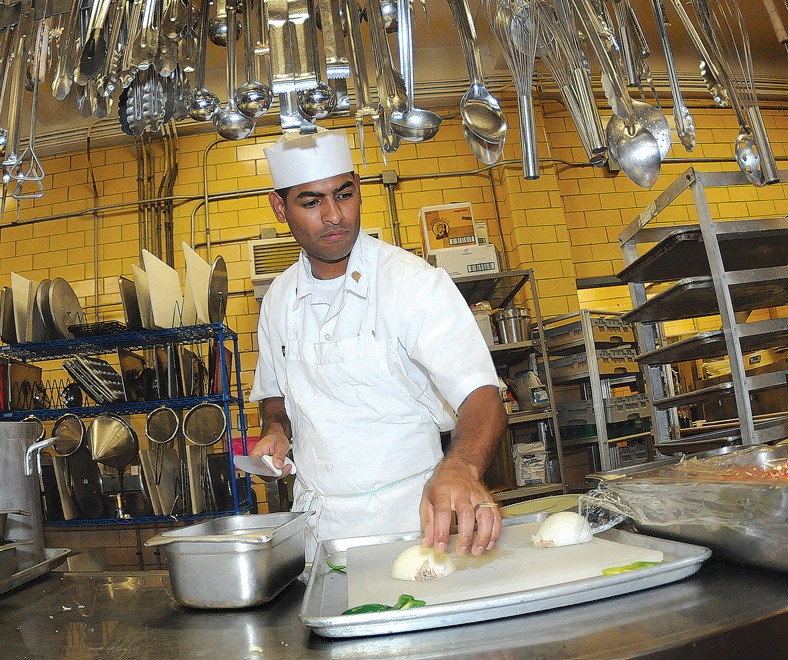
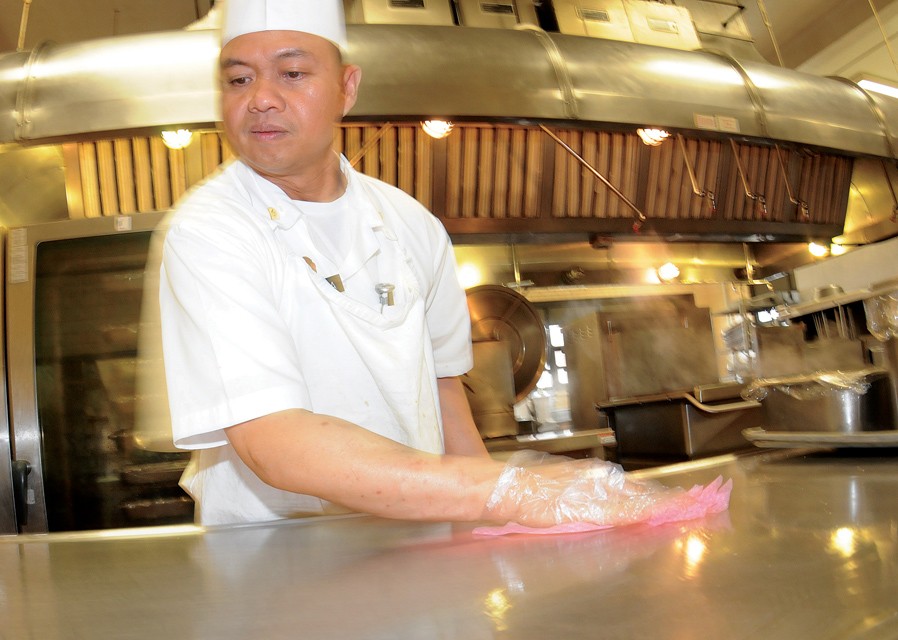
Social Sharing